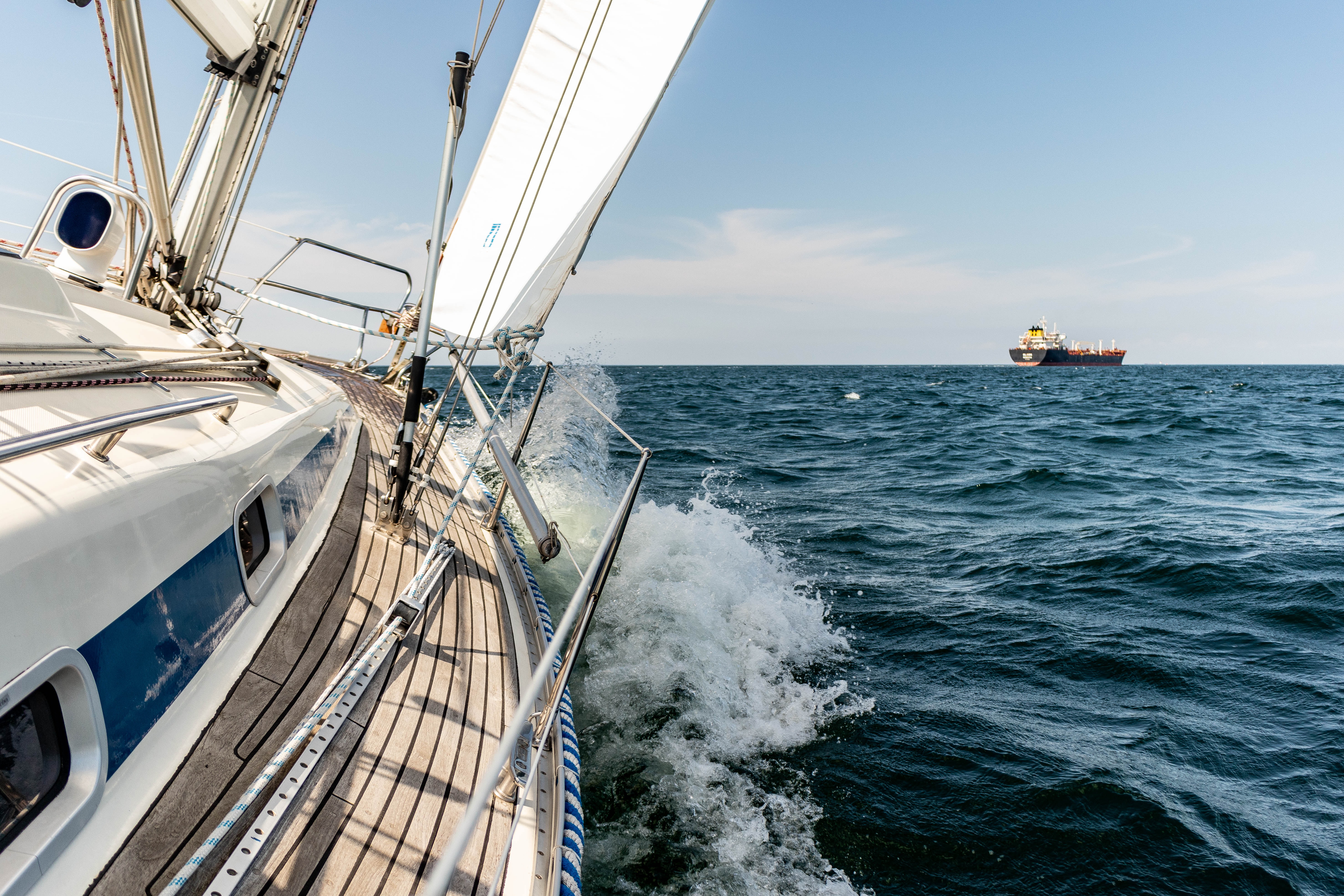It's important for boat owners to be aware of common boat insurance claims. Understanding the perils that cause these claims can help boat owners take proactive measures to prevent such incidents from happening.
If a claim does occur, you should contact your insurance company as soon as possible and provide the necessary documentation, such as photographs of the boat, receipts for repairs, and police reports.
Below are some of the most common causes of boat insurance claims and the steps you can take to prevent and handle them.
Collision Claims
Collision claims occur when a boat collides with another boat, a fixed object, or a submerged object. They are very common and account for many boat insurance claims.
To prevent collision claims, boat owners should:
- Practice safe boating habits, like staying alert and following navigation rules and regulations set by authorities.
- Maintain a safe speed and monitor water conditions, visibility, and any other boats or potential hazards in the area.
- Keep the boat in good working condition with regular maintenance and ensure it is seaworthy and safe to operate.
- Avoid operating the boat while under the influence, as this can impair judgment and reaction time and increase the risk of collision.
Weather-Related Damage
Weather-related damage is another common cause of boat insurance claims. This type of damage can occur due to storms, high winds, heavy rain, freezing temperatures, and other severe weather conditions.
To prevent weather-related damage, boat owners should:
- Check the weather forecast before heading out on the water and take necessary precautions (seek shelter or return to port).
- Properly secure all loose items on the boat, including any equipment, gear, or personal items.
- Ensure the boat is properly anchored or docked to prevent it from drifting or breaking loose during a storm.
- Make sure that the boat is equipped with necessary safety gear, such as life jackets, flares, a GPS device, and a VHF radio to contact rescue services in case of an emergency.
- Be familiar with nearby marinas, harbors, or other safe areas to seek shelter during severe weather conditions.
» RELATED: Extreme Weather and Your SkiSafe Policy
Fire
Fire is another common claim that can be caused by faulty electrical systems, improperly stored fuel, and other hazards.
To prevent fire, boat owners should:
- Keep the boat's electrical systems in good working order by regularly inspecting wiring, fuses, and other electrical components.
- Properly store fuel and other flammable materials in a well-ventilated area and ensure fuel tanks and containers are properly sealed.
- Have working fire extinguishers on board and install smoke detectors in key areas of the boat, such as the cabin and engine compartment.
- Have an emergency plan outlining how to prevent and fight a fire. Include emergency contact numbers, emergency shut-offs, and escape routes.
- Ensure the boat is in good condition, as a well-maintained boat is less likely to catch fire.
Theft
Boat theft is a concern for many boat owners and a common cause of boat insurance claims. Thefts can happen while the boat is docked in a marina, stored at a storage facility or stored on a trailer.
To prevent theft, boat owners should:
- Install an alarm system or anti-theft device to deter thieves and provide alerts of any unauthorized access to the boat.
- Lock all doors, hatches, and other access points to the boat.
- Remove valuable personal items from the boat when it is not in use, such as electronics, jewelry, and cash.
- Engrave the boat's HIN (Hull Identification Number) on the vessel and other components, such as the outboard motor, trailer, etc.
- Store the boat in a secure location year-round.
Natural Disasters
Floods, hurricanes, and other natural disasters can cause significant damage to boats.
To prevent damage from natural disasters, boat owners should:
- Store the boat in a safe location that is less likely to be affected by natural disasters, such as a marina or boat storage facility.
- Properly secure the boat to a dock or other fixed object to prevent it from drifting or breaking loose during a storm.
- Perform regular maintenance and repairs to ensure that the boat is in good condition and able to withstand the conditions of natural disasters.
- Stay informed of the weather forecast and any alerts or advisories from local authorities.
- Get additional insurance coverage for natural disasters, such as floods and hurricanes.
By taking these steps, boat owners can reduce the risk of damage from such perils and help to ensure the safety and security of their boats.

